by Jenny Rose | Oct 21, 2023 | A Flourishing Woman, Body
I came down with COVID this week. It’s the first time I’ve had it, for which I’m thankful, as I’ve been diligent about vaccinations and I’m sure they are mitigating the virus. Three weeks ago I received the latest vaccination, in fact. (And no, I don’t think that’s why I got COVID!) 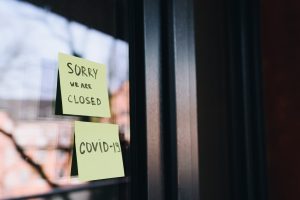
In our current world a positive COVID test is an iron-bound, all-purpose excuse for downing tools, stepping away, and spending some quiet time in solitude. So here I am, on the bench (or in my case, a comfy couch) instead of making my way through my usual work week and routines.
I haven’t been afraid of winding up in the hospital on a ventilator. I’m not especially high risk and in very good health. I’ve been resigned, more than anything else. Resigned that I unknowingly exposed my friends and coworkers before I knew what was happening. Resigned that this is a different viral experience than I’ve ever had before. Resigned that someone else taught my group swimming lessons and enjoyed the kids. Resigned to the fact that now we all have to mask for a time at work.
I’ve been miserable with fever, aches, congestion, and difficulty breathing. The physical symptoms are easing; however, I have entirely lost both taste and smell, perhaps the most distressing symptom of all, in part because it’s so different. Yesterday I ventured out for a walk.
It was breezy and grey with rain moving in, the air warm and soft. I took a short neighborhood walk, enjoying being outside and moving, but struggling with shortness of breath, disoriented by my inability to smell the rain coming and the crisping leaves. I feel cut off from my greatest source of solace, the natural world. I will continue to walk every day because my body needs it, but my joy in being outside is painfully diminished.
When I completed my test route, I felt too tired to do more. I came home and discovered I’d been gone less than 10 minutes.
At times like this I bless my passion for reading. I’ve had eye inflammation and itching with this virus; a symptom I’ve never had before. It worsens as my fever increases and makes looking at a screen or watching TV miserable, as well as sitting in any kind of sunlight. However, I can turn on a lamp and read until I doze, then wake and read some more. This passes the time, keeps me quiet, and distracts me from my present experience.
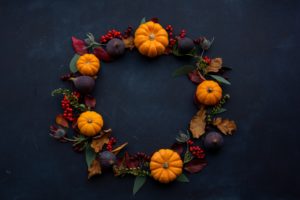
Photo by Joanna Kosinska on Unsplash
This morning I walked again in a light rain. It’s been a dull-colored fall here. Some leaves are finally starting to turn; other trees are mostly bare already. This time I was ready for scent blindness. I turned away from what I couldn’t do and feasted my eyes on the rich colors of fall-blooming flowers and the leaves. A humid breeze fanned my cheek. I focused on breathing, filling my weary lungs with the fresh, damp air, exhaling as well as I could through my nose. I paid attention to what I heard: crows squabbling, an occasional passing car, a barking dog, the subtle background sound of the rain. I walked a longer distance than yesterday.
I haven’t run a fever from more than 24 hours and my throat feels normal again. Progress, although my heart thumps uncomfortably when I’m up and doing things and I have the lingering feeling I’m not getting quite enough air. Still, symptoms are clearly abating.
Benches are not comfortable, for the most part. No back support. Hard under the ass. Sitting on the sidelines watching others live their lives when we can’t participate much in ours is discouraging. So much of my daily centering, comfort, and self-care are bound up with scent. I could not have anticipated how devastated I feel without the simple ability to smell and taste. My scented fall candles, usually a daily pleasure, sit unlit. Tea might as well be plain hot water. Food is absolutely tasteless. I can’t smell when the cat boxes need to be emptied. Cleaning doesn’t smell like cleaning. Fresh air doesn’t smell fresh. Taking a shower, using soap and lotion and putting on clean clothes, is joyless. Eating is a chore.
Yet still there is reading, and writing. I’m washing my sheets. I’ve aired out my room and waved a smudge stick around. I’ve washed the breakfast dishes. The cats are snuggled up with me in my chair. The rain comes down. Another cup of tea cools at my elbow. I picked up a scarlet leaf while I was out walking; an antidote to depression.
In spite of violence, pain, suffering, and illness, the world is beautiful. It welcomes us, shelters us, sustains us. Small pleasures and joys are everywhere, if we only engage with them. Refusing pleasure and peace does not help those who have none. Whatever our circumstance, we are all connected.
Questions:
- How would your life change if you couldn’t smell anything?
- If you had no ability to taste, how might it change your relationship to food?
- In these dark days of twisted politics and violence, what gives you hope?
- What is your favorite indulgence or ritual when you’re sick?
Leave a comment below!
To read my fiction, serially published free every week, go here: 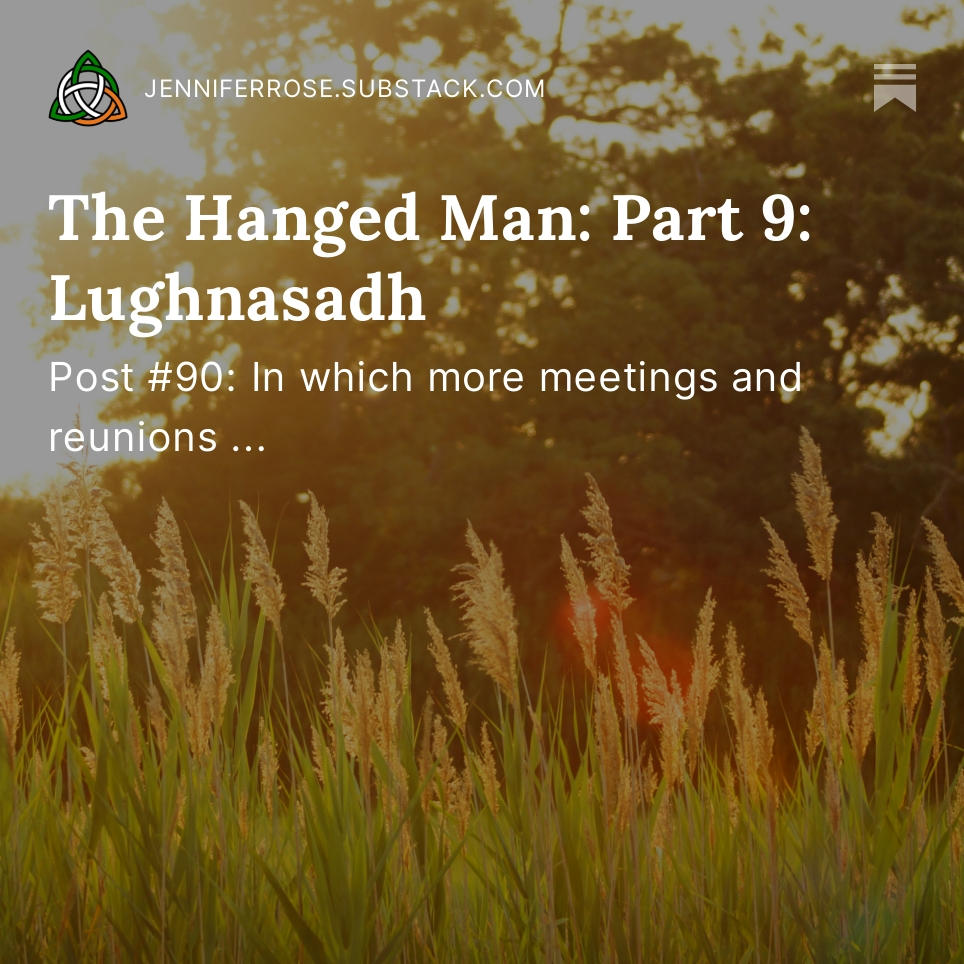
by Jenny Rose | Aug 26, 2023 | A Flourishing Woman, The Journey
Two weeks ago my 87-year-old demented mother fell in her memory care unit and broke a hip for the second time in less than a year. Eight days later she died in a hospital under the care of Hospice, my brother at her side.
Until I sat down to write this, I was afraid I had lost my words, lost the need to write them, lost the ability to form them into meaning. But I haven’t. I’m still a writer. This remains. That’s a relief.
Oh, I’ve been writing. Lists. Notes. An obituary. Texts. Updates to family and friends. Daily journaling. But it hasn’t been creative writing. It hasn’t been this blog, or my fiction. These last two weeks have passed by, the first in a blur of pity and anguish, and the second in numb relief glazed with exhaustion, and I have not posted or published. I haven’t kept track of the days; they spill into one another, as the days and nights blended together while my mother lay dying and we waited.
For a time words have simply been inadequate to relieve the pressure of my feelings in any organized or coherent way. They flew away from me, leaving a series of kaleidoscopic impressions, sensual details so vivid they frightened me with their power.
While my mother lay dying I reread my childhood copy of The Wind in the Willows by Kenneth Graham. Reading has also largely failed to sustain me during this time. I find myself unable to focus. I read a paragraph or two, and then realize I’ve been sitting staring into space, out the window or into the garden, not hearing, not seeing, not even thinking. Just sitting. But I needed a companion for the night watches, something comforting and familiar. Something innocent.
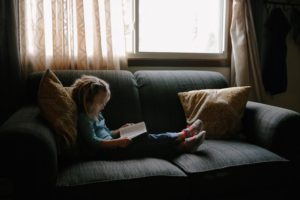
Photo by Josh Applegate on Unsplash
The fan in my window purred during those hours, blowing in cool night air and an occasional moth or mosquito. Every night, when I go to bed, I light a tea light in a candle lantern. When calls or texts reached me, I knew when I opened my eyes if it was before midnight or after, according to whether the candle still burned. Propped up on pillows, glasses on, my small bedside lamp alight, I spoke to Mom’s facility staff, emergency department doctors and nurses. I texted with my family. I read, the well-remembered illustrations making me smile as I communed with Rat, Mole, Badger, and the ridiculous Toad, finding respite for a few minutes before turning off the light and lying awake in the dark room, listening to the fan, feeling my heart beat, resting, breathing, waiting.
While my mother lay dying and after, I’ve stained wooden pallets. My partner and I are building a 3-bin compost system against the back yard fence. We set out sawhorses. I found an old brush, a rag, a stirring stick. We bought stain. I lay a pallet on the sawhorses, brush away dirt and debris, and paint every surface. The raw wood soaks in the oil-based stain, a rich brown color. The brush is more and more frazzled. I’m sloppier than I would be if painting a wall. The pallets are splintery. Some of the boards are split or loose. I bend over, the sun hot on the back of my neck and my bare arms. Mosquitos bite me. Stain drips between the boards as I brush their edges, dappling the sawhorses, falling onto the filthy old cream-colored jeans I’ve been wearing all summer in the garden, and onto my worn-out sneakers, used only for outdoor work now. As I maneuver between the boards, stain smears the skin of my hands and wrists. I kept the phone close, in a patch of shade.
This is the only sustained work I’ve been able to do. Now and then I wash a few dishes. I’ve done a couple loads of laundry. I go out into the garden, note the trimming, pruning, composting, mowing waiting to be done, and turn away. It all feels like too much. I don’t know where to start. It’s impossible to open the garden shed, get the tools, wheel out the wheelbarrow.
But the pallets. I can do that. It’s a simple task, direct. I don’t need to make any choices. Each side takes fifteen or twenty minutes. When I’ve finished a side, I wrap the brush in an old plastic bag, cover the can loosely, let the pallet dry an hour and a half in the sun. Then I turn it over and begin again. Two coats each side. One side after another.

Photo by Manuel Barroso Parejo on Unsplash
The smell of stain. The prickly feeling of intense sun on my skin. I think about compost, recycling, breaking down life to sustain new life. I think of ashes to ashes and dust to dust. I wonder if I’ll ever use the compost bins without thinking of Mom. I wonder who names the colors of stain and paint. I chose ‘Canyon Brown’ for this project. I vaguely hear birds, cars passing by. Small groups of women walk by in clumps, hospital employees on their lunch break, talking about families, gardens, school starting, hospital gossip. I should be at work, on that same campus, just a ten-minute walk away. I should be, but I’m not. I’m here, staining pallets, waiting for Mom to die and then on bereavement leave.
Am I bereaved? How would I know? I wonder why I don’t care enough to follow the thought. I let it drift away.
I decide I want to make bread. I don’t eat bread often, so rarely make it any more. But my rosemary is bushy and ready to be harvested, and someone brought fresh home-grown garlic into work to share before … before all this. So I make a sponge, stirring together milk, a little sugar, yeast, water. I chop fresh rosemary and garlic, very fine. I take flour out of the freezer and let it warm. The dough is heavy under my hands, sticky at first and gradually becoming supple and smooth. The earthy smells of garlic and rosemary vanquish the smell of stain in my nostrils. I turn the dough, kneading. The timer ticks off seconds and minutes. I clean the bowl, grease it, use a linen towel to cover it for rising. I put it in the oven for safe keeping, because the cats are likely to lie on it or step in it, or nibble at it if I leave it out. The bread, like the pallets, is a project in stages. I don’t have to focus on any one step for more than a few minutes. I move between the kitchen and the back yard with my phone, not thinking, not planning, just taking the next step, and the next. I can’t remember times, so I write them down. About 90 minutes for the stain to dry. An hour for the bread to rise. Another 90 minutes for the pallet to dry. Another hour for the shaped loaves to rise. Another 90 minutes. An hour for baking.
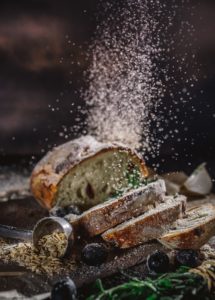
Photo by Helena Yankovska on Unsplash
At the end of the day, I have two enormous round loaves of bread to cool, slice, and put in the freezer. This batch will last me for a year. I have finished another pallet. I leave it on the sawhorses to dry overnight. My stained hands smell like garlic.
I haven’t cried since the last night call, my brother telling me Mom was gone. Perhaps I cried all my tears before she went. I receive condolences with all the grace I can muster. People talk to me about God and heaven. They talk to me about Mom. They talk to me about their own experiences of death. I try to be gracious. I try to look like I’m listening, like I’m there. With my brother and sons, my partner, I can be real. The faces of my friends comfort me. They don’t need anything from me. They don’t ask for anything. I can see their concern, their love for me, their sorrow. They hug me, and smile. They talk to me about small things, the daily things I’ve lost track of – family, friends, outings, work. I pick up a friend’s daughter and feel almost normal, doing an ordinary thing, a manageable task I cannot fail.
I realize part of my feeling of unreality is rooted in a loss of identity. I catch sight of myself in the bathroom mirror and pause. I rarely look at myself in the mirror. This woman, who is she? She isn’t the disappointing daughter any more. She can’t be, if there’s no mother to disappoint. What else is she? Who else is she? I look into my own eyes and feel no shame, no guilt. Did Mom take them with her? How will I navigate my life without them on my shoulders, without the knowledge that Mom is alone, suffering, needing? For fifty years I was at her side, day and night, year after year, ineffectual, helpless to fix or heal her physical pain, her dysfunction. Feeling my failure, my powerlessness, knowing I more often made it worse than better as time went on, even though she clung closer and closer to me as she aged. She could not release me and I almost waited too long to release myself.
But the geographical distance I put between us brought no real release. She still suffered. She declined, grew confused. Her body aged and began to run down. She was just as lonely without me as she was with me, just as emotionally remote, just as relentlessly needy. She cut herself off from me, but I still carried her. Internally, I still orbited around her. I still agonized for her.
I still loved her. I always loved her. I accepted she could not find me lovable, but it made no difference. She was my mother, and I loved her. All I ever wanted was for her to be well, and happy, but I could not make it so, and in her eyes it was my responsibility to fill her need. Indeed, she told me long ago her physical pain started with her pregnancy with me. I accepted the blame, and was heartbroken, and have tried desperately to make up for it ever since.

Photo by Nicole Mason on Unsplash
Now Death has come to stop her suffering. Has mine stopped, too? I don’t know. I’m too numb to tell. But I feel different. I feel … released. I prayed for her release and freedom, not mine, but perhaps they were linked. Many times a day I think of her, hear her voice in my head, and I realize with a painful clench of my heart she’s gone. It’s over. I can’t humiliate her anymore because of what I wear, how my hair looks, what I do, who I sleep with, or, most of all, what I write. She’s moved beyond humiliation. I can’t fail her anymore. And that’s a soaring, joyful, unbelievable thought. I can’t fail her anymore.
I wonder if I’ll finally feel good enough, if I’ll do a good enough job, live a good enough life. Might I simply enjoy my small talents, my joyful work, my community, my garden? Might I immerse myself in the loveliness of life without the gnawing guilt of knowing I’m happy when she’s not, I’m companioned when she’s not, I’m relaxed and rested and peaceful when she’s not, I’m laughing when she’s not?
The last couple of times I spoke to Mom, I told her it was okay to rest now, she could let go, be at peace. We told her her loved ones and animals were well and happy, and she could relax.
I told her, and I meant it. Was I telling myself, too?
She could not release me, yet I am released. Did Death break the chains when he gathered her in? Or now, at last, have I released myself, now that she’s moved entirely out of my power and knowledge?
As I write this, it’s Wednesday afternoon. I have finished another pallet. I have written. I have sat in the sun, read a paragraph or two at a time of an old Edna Ferber novel, rested my eyes on the garden. The lily stems are turning dry and brown, as are the leaves. Sunflowers bloom. The sun is hot. The phone has been sitting on my kitchen table all morning, silent, as I go in and out. I have balanced my checking account, scheduled a private swim lesson in a home pool, ironed a tablecloth and three napkins. Tomorrow I go back to work.
A new page of my life has turned. I can’t read it yet. It’s enough to sit with it in my lap, letting my gaze wander over blue sky and afternoon clouds, the garden, our old cars, the worn wooden boards of the porch, the bruise on my left knee, the mosquito bites on my right arm, the smears of stain on my hands. It’s too bright in the sun to read this new page, too hot, too much effort. I’ll read it later.
I dare to be at peace.
Daughter’s Dream (July 2014)
I dreamt I carried my mother.
The car had slipped out of her control
with a blind will of its own,
and I thought
I knew she shouldn’t be driving.
We landed in water.
I swam to her and held her in my arms.
Then the water was gone.
I carried my mother,
but she left my embrace,
slipping free of her embattled flesh.
Irrevocably, I felt her go.
I was alone.
I carried the vacant body of my mother.
Empty beds stood all around me
but the sheets were disordered and dank,
Smeared with shit.
I carried the vacant body of my mother.
There was no clean place to lay her down.
I carried the vacant body of my mother,
seeking to slip into my own freedom,
seeking absolution.
To read my fiction, serially published free every week, go here: 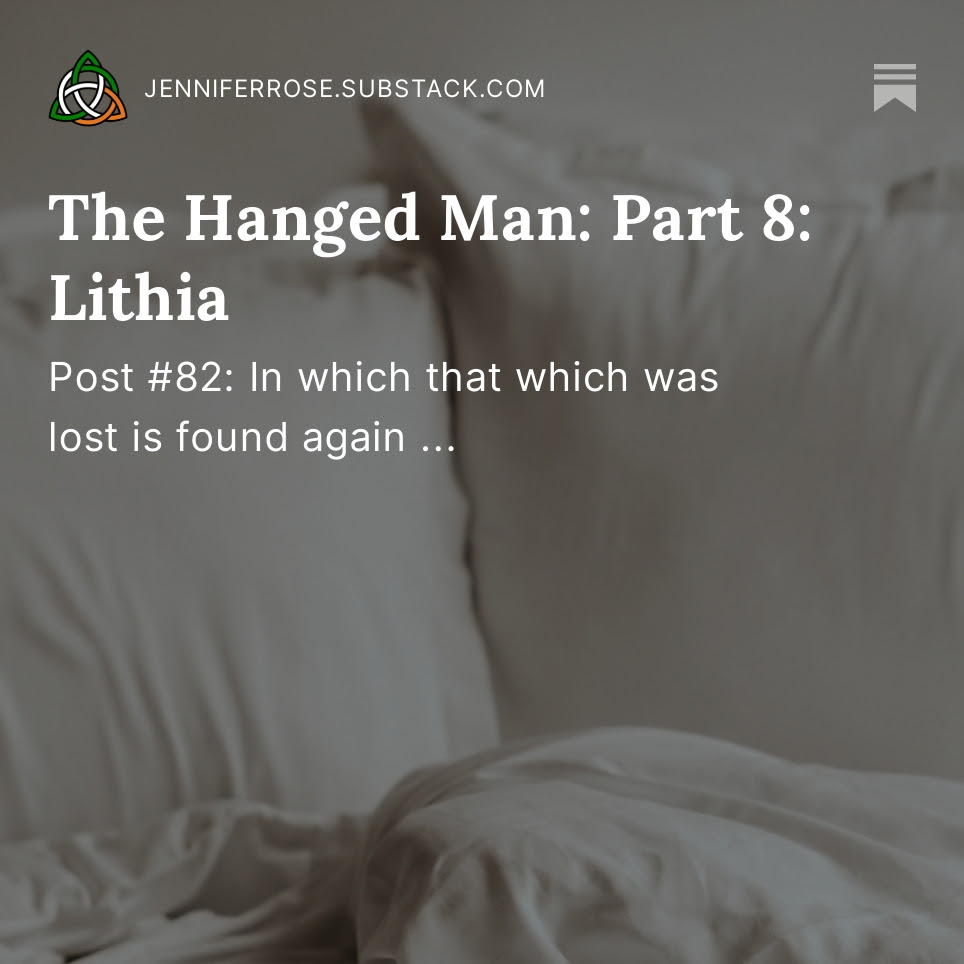
by Jenny Rose | Jul 19, 2018 | A Flourishing Woman, The Journey
In the used bookstore in which I volunteer, I found a slim paperback book of poetry, modestly and plainly bound, entitled A Gypsy’s History of the World, by Kim Robert Stafford. It called to me and I bought it for $4.00.

Photo by Syd Wachs on Unsplash
I had never heard of this poet, but he turns out to be quite well-known and has published several books, which I’ll be looking for now. In the meantime, this book is filled with treasures.
For a couple of days I’ve been groping for this week’s post. Sometimes they come so easily, these posts. Other times I flounder. It seems that the more I have going on, the harder it is to come up with a focused essay. Irritating, but writing can be like that.
When I listen to the sound of my life this week I hear a cacophony. There are the half-excited, half-apprehensive feelings I have as the night approaches on which I’ve scheduled a local venue to once again try to start a dance group. (Will I be a good leader? Will they like me? Will anyone come?) There’s the increasing pressure I feel to find a way to earn a paycheck. There are new friends and our conversations as we strengthen our connections. (Am I talking too much? Am I offensive? Am I too blunt? Do I ask too many questions?) I’m preoccupied with family dynamics and past, present, and future possibilities and fears. (What’s the right thing to do? What’s loving? What’s useful? What will people think about me? How do I take care of everyone’s needs and expectations? How much irreparable damage will I do if I make the wrong choice?) There are my weekly activities and appointments. All the material of my daily reading swirls in my head, awaiting synthesis and integration.
In my creative world, I’m with Pele, the Earth-Shaper, sensual, passionate and angry. This week others will come to dance with her, to make offerings, to propitiate and reconnect. Revolving around her are other characters: Rumpelstiltskin the dwarf; Poseidon, the Greek god of the sea; a little brown bat called Ash and his companion, a bark beetle; the eldest of the twelve dancing princesses, Ginger; an old woman, Heks, apprentice to Baba Yaga; and Persephone, who comes to drum for the dance.
All this, and I can’t come up with a thing to post about.
I know this dynamic. The more pressure I put on myself, the harder I try, the more elusive inspiration will be.
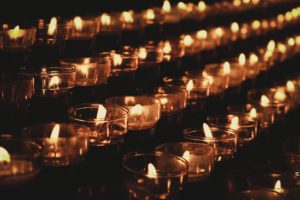
Photo by Pascal Müller on Unsplash
It’s a foggy morning here in Maine. Foggy and oppressive with high humidity and a threat of severe weather this afternoon. I’m planning on meeting a new friend for a walk and then I’ll swim. I decided to stop trying to write a post. I turned off all the lights up here in my little attic space and lit a candle. I picked up A Gypsy’s History of the World and turned back to the beginning of the book.
Duets
A dream flips me into the daylight.
I pry my way back:
a door opens, I enter, never
escape; the jailor sings by morning
duets through the bars with me.
I wake and out my window
by dawn a blackbird sings and
listens, sings and listens.
Listen. Thistledown jumps its dance
in the wind. I’m small and have
no regrets. Yesterday is a temporary
tombstone, a hollow stalk
on the hill. I’m putting my best
ear forward; in the space between songs
I’m travelling. My hands make
whistling wings in the wind.
No things meet without music:
wind and the chimney’s whine, hail’s click
with the pane, breath in a bird’s
throat, rain in my ear when I
sleep in the grass. I miss the
whisper of a swallow’s wings
meeting the thin air somewhere far.
Branches of my voice, come back.
Inside each song
I’m listening.
At once the cacophony in my head faded away, no more than the murmur of the trees and breeze or the ocean’s breath. For a few minutes, I thought about being small and having no regrets, let alone imagining future regrets. Yesterday and yesterday and yesterday, all temporary tombstones. All my yesterdays add up to almost 20,000 hollow stalks on a hill. And yes, activities and schedules, efforts and appointments, hopes and fears, words and information, friends and family, the way the shadowed ceiling looks in a sleepless hour and the path of silent tears on their way to my pillow. All of that. But I forget about the space between all those songs. I forget that I’m traveling through this place, this life, and these landmarks.

Photo by Dakota Roos on Unsplash
Sometimes I forget to just listen to life’s music, just witness, just be present and still. Sometimes I forget to fold my hands in my lap and watch the wavering shadows the candle makes inside the song of my life. The song will not be endless. One day it will be yesterday’s song, held in a hollow stalk on a hill. I can’t reach out my hand and clutch it, pin it down, record it and make sense of it. I don’t need to. I don’t want to.
Today, friends, I’m listening.
My daily crime.
All content on this site ©2018
Jennifer Rose
except where otherwise noted
by Jenny Rose | May 3, 2018 | Contribution, Emotional Intelligence
Years ago, during a conversation about men, a girlfriend of mine said, “You have to kiss a lot of frogs.” It was the first time I’d ever heard that observation, and I’ve never forgotten the way it made me smile. Now, it’s all over the Internet, but then we weren’t numbed by such a constant bombardment of memes and phrases.
One does have to kiss a lot of frogs in life. Roommates from hell, jobs we hate, the nether regions of those more powerful than we are, all require a certain amount of kissing. Then there are sticky-faced children kisses; big-hearted sloppy dog kisses; and, my personal favorite, sandpaper cat kisses that remove the top layer of skin from one’s nose.

Photo by Andreas Fidler on Unsplash
The central preoccupation of kissing, of course, is the “romantic” kiss. We quickly learn that some kisses are more romantic than others. A lot of our personal kissing history is hurriedly filed away under the label “What Was I Thinking?” and we try to forget about it.
When I really consider it, I realize we spend much more time kissing frogs than anything else. Someone should write a manual. (Poor little frogs. I’m very fond of them. I wonder if they have metaphors about kissing princes in hopes they turn into frogs. It would only be fair.)
Leaving an old, familiar place and coming to a new one reminds me how many frogs are out there, waiting to be kissed, especially in this season when the night shrills with the insistent songs of a variety of species from tiny peepers the size of a thumbnail to enormous bullfrogs. I’ve kissed a lot of frogs trying to make new friends. I’ve kissed a lot of frogs trying to find someone to cut my hair, a massage therapist, a dentist, a doctor, and a health food store.
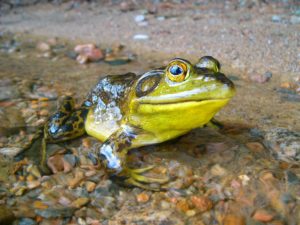
Photo by henry fournier on Unsplash
Kissing frogs takes time, and I get discouraged. I’ve never been comfortable socially. I hate trying to make a connection with strangers. I know intellectually that for every ten times I reach out to another, nine times it will be another dead end, but the tenth time something wonderful will happen. Persistence and patience do pay off.
I’ve spent my life with books. I was reading before Kindergarten (thank you, Richard Scarry, Mom and Dad). Our home was always filled with books. I have a library degree and I’ve worked in a public library and an elementary school library. In my old place, I did volunteer work for a used bookstore run by the local Friends of the Library.
I came to Maine with more than 30 boxes of books, and that was after a severe culling. My partner has at least as many books in his own library. This old farmhouse is positively groaning with our combined libraries, and we’re in desperate need of more shelving. I was disappointed to find a less robust library program than I was used to in the nearest town, and no bookstore of any kind. My first year here, I did hear of a used bookstore in a college town about 30 minutes away, and my partner and I agreed we’d go check it out.

Photo by Jazmin Quaynor on Unsplash
Three and a half years later, I finally made up my mind to stop shillyshallying around and go find that bookstore. I made a date with myself, pulled out maps, informed my partner I was going, dammit!, and we went.
Heaven. Bliss. Home. Shelves and boxes and unstable stacks of books on every surface. Hundreds of books. Thousands of books. Chairs and stepstools and round stools. Old encyclopedias. Children’s books. A huge table covered in a tornado of books.
I headed for the farthest back corner and started working my way forward through nonfiction hardback, plays, poetry, and then fiction.
A long time later, I went in search of the store owner, who was talking with my much more gregarious and extroverted partner in the casual fashion of men getting to know one another. Without preamble, I asked the owner if he had any use for a volunteer experienced in library and bookstore work. We were standing in a room I hadn’t explored yet that looked as though it had been the site of an explosion. Later, I found out a pipe had burst and flooded the place.
He thought this was a fine idea, and said I could start that minute. He also said he’d pay me in books (I made a valiant effort not to drool in front of him). I didn’t want to start that minute, so I declined, and I could tell he thought I didn’t mean it, not really. I said we’d talk. I went back to browsing, smiling to myself.
A couple hours, a heavy box and $145 later, we emerged, happy and grubby. I’d made a date to return, but the owner didn’t think I really would.
On Monday, as promised, I returned precisely on the dot of 12:15 p.m., the time he requested.
He’d hurriedly emptied several bookcases at the time of the flood, and disassembled shelves to get them out of the way. He’d been working to get the shelves back up and wanted me to load them. I asked if I could wipe down the shelves first. A raised eyebrow and surprised agreement. He found a bucket and a rag and I got to work while he searched among towering piles of heavy boxes for the books that belonged on the shelves. This was the general fiction mass market paperback section. He wanted me to weed out science fiction, fantasy, horror and mystery for other sections. He also wanted me to weed out duplicates, choosing the best copy for the shelf.

Photo by Syd Wachs on Unsplash
So began four glorious hours of squatting, bending, kneeling, sorting and alphabetizing. A bookstore invariably reflects the place it’s in. In Colorado, we had a Colorado section, naturally, featuring Colorado authors and artists. We also had a big Western section featuring Louis L’Amour and other Western writers. In Maine, there’s a Maine section and history and biography focused on the founding of the colonies, mills and seafaring. Also, a lot of political nonfiction.
The fiction is heavy on Richard Russo, Bill Roorbach, Annie Proulx and other Maine writers, as well as, of course, shelves of Stephen King.
I emptied box after box. I filled one of the empty boxes with duplicates and started another. I made leaning piles of mystery, fantasy and science fiction for other sections. Customers came and went, stepping around my boxes, bucket and piles, browsing with the quiet intensity of true booklovers. Robert, the owner, moved boxes around, answered the phone and hummed under his breath. I put aside a few books I wanted to take home.
Four hours passed like a happy dream. I asked if I could come again. He said yes, he’d be delighted. We made a date. He’s still not entirely convinced I’ll be there, but that’s okay. He’ll learn to trust me.
Coming out of the door into the spring afternoon, I was exhausted, my back ached, my hands were filthy and I was absolutely happy. I’ve found a way to volunteer again, to make a contribution doing something I love and believe in. I’ve found a place to belong with people I have something in common with.
I kissed a frog and this time it turned into a prince.
I drove home along the Kennebec River, watching the water birds and enjoying the budding trees, pools of blue hyacinths and banks of daffodils. It’s strange, the things that give our lives the greatest meaning. I thought of the frogs in every pool, pond and puddle right now, in every river and stream, singing, peeping, croaking and chuckling. How many women would look at a disordered, slightly down-at-heel used bookstore and see a prince?
I don’t know. I don’t care. I’m happy. I have that excited feeling of anticipation we get when a new door opens. Through books and volunteer work I’ve found dear friends, great jobs, meaning and purpose. Dreams I didn’t know I had have come true.
Not every kiss is a new beginning. Not every frog is a prince. Every book, though, opens onto a world, and a building full of new worlds can’t help but be overflowing with magic, power and possibility. I’m glad I didn’t give up on kissing frogs. Maybe that bookstore has been waiting for me as persistently as I’ve been searching for it.

Photo by João Silas on Unsplash
All content on this site ©2018
Jennifer Rose
except where otherwise noted














